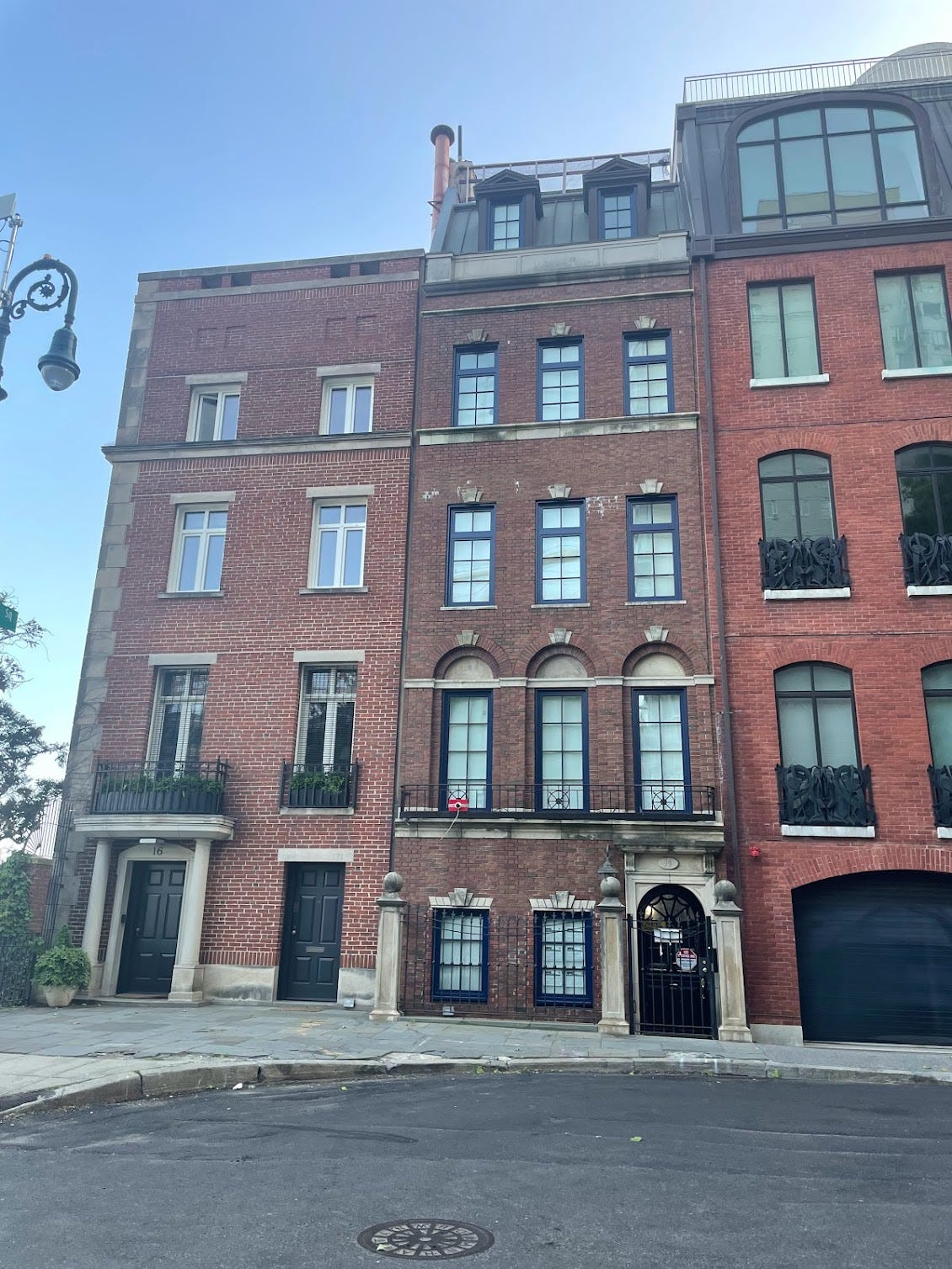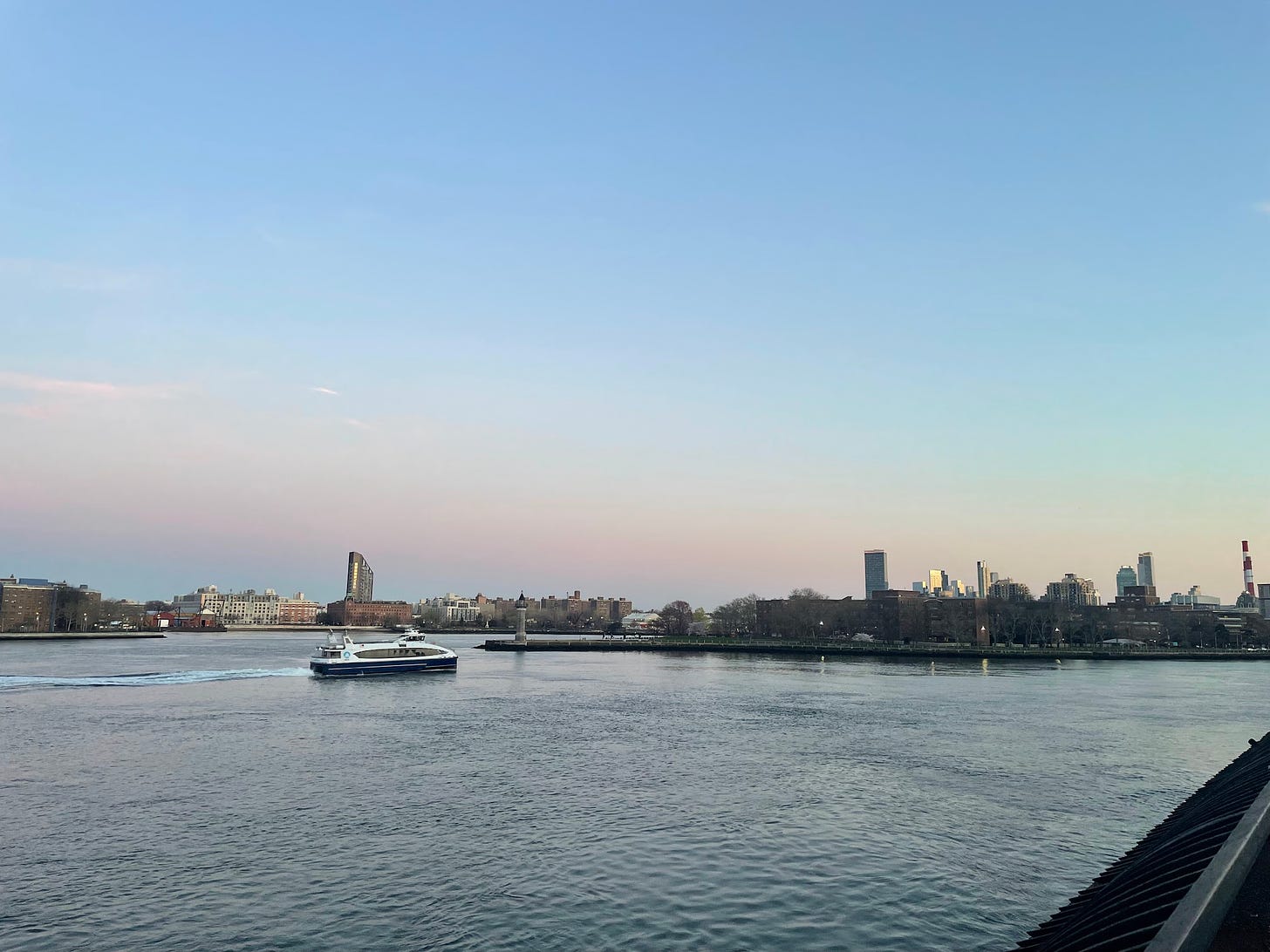How I Found My Rent Stabilized Apartment in New York City
What rent stabilization is, how I found it, and why I'm so grateful to have it
I had expected the rent to go up, but it was still a shock when I opened the envelope. I had moved into the apartment in June 2021, and at the time, it felt like I jumped on the last lifeboat off a sinking ship—I found one of the last “Covid deal” apartments in NYC.
Rents across New York City rose by 12% from 2019 to 2022, and the increase was drastic from the deals people got in 2020 compared to what they paid in 2022. The only laws protecting market rate tenants on rent increases are that they need 30, 60, or 90 days notice for an increase over 5% depending on how long they’ve lived there. Otherwise, their rent can double, or they can be asked to vacate at the end of their lease.
I paid $1,400/month for my portion of the rent in my first apartment in the East Village that I shared with two roommates. That was in 2019. Even then, I had dreams of living alone. I remember touring one tiny, dark one bedroom apartment on E 34th Street that was going for $1,950/month. It was the top floor of a walk-up with no amenities, but it was listed under market value. Still too expensive for my $68,500/year salary.
But then, with rents down because many people left the city, temporarily or permanently during the pandemic, living alone started to feel more attainable. I was making a little more money, too—$75,000/year now, with a bonus on the way.
I found the apartment in May 2021 and applied to it minutes after I viewed it. It was a studio apartment in an elevator and doorman building in Kips Bay. And the listed price was $1,950/month! If you live in New York, you know that’s a steal. When I got approved and signed the lease, I learned it was actually $2,100/month with one month free. I still signed.
A year later, they sent me a lease renewal at $3,200/month.
I didn’t sign that renewal. I couldn’t afford that rent, even though by then I had a higher salary since I’d switched companies. The day I saw that lease renewal, I vowed to find a rent stabilized apartment.
What is rent stabilization?
There’s a lot of misconceptions and false information about what rent stabilization is. It’s not the same thing as rent controlled - there are only around 16,000 rent controlled apartments left in the city, and these are apartments that have housed the same tenants since before July 1, 1971.
Rent stabilization is a lot more common - over 1,000,000 apartments in New York City fall into this classification. It’s more common in older buildings, specifically walk-ups with six or more apartments, but due to how the laws have changed over the years, the types of apartments that still qualify vary.
The most well known benefit of a rent stabilized apartment is that the rent increases by only a small amount each year, usually between 1-4%. Each year in June, the Rent Guidelines Board votes on an annual percentage increase for all rent stabilized apartments. Landlords can choose to raise the rent up to that percent (and they usually do).
But the best benefit is that your landlord can never kick you out—ever. Okay, there is one exception: if they want to move into the apartment for personal use. Which essentially never happens, since most of these apartments are owned by large companies. In a market rate rental, not only can your landlord raise your rent by whatever they want, they can kick you out at the end of your lease.
I knew that if I found a rent stabilized apartment, I could move in and know I could have the apartment for years and really make it my own, without fear of my rent going up by $1,100.
How I Found my Rent Stabilized Apartment
There are resources to find rent stabilized buildings, but you actually won’t know for sure if your apartment is rent stabilized until you move in and request the paperwork from the city (you can only have it mailed to you at that address, so you can’t look it up before you sign the lease). The landlord should have a stabilized rider in your lease, but it’s unfortunately common for landlords to avoid adding this, hoping that people won’t know their apartment is stabilized.
You could find a rent stabilized apartment from a friend’s lease. You might get tipped off from a broker. Or, you might find it on Streeteasy, like I did.

Streeteasy is the most popular and best website to look for apartments in New York City. Sometimes, the agent will list the apartment and mention it’s stabilized in the caption. That’s more common if the apartment is priced around market rate, because it’s an incentive for the tenant to pick that apartment over other market rate apartments. You might see it more in the winter, too, when there’s less competition for apartments.
It’s a misconception that rent stabilized apartments are cheap—I pay $2,420.50/month, which is close to market rate (maybe $200 less), and I paid a broker fee when I moved in. Well, actually, this month I only paid $1,820.50, because the cooking gas has been out in our building for almost a year...that’s New York for you. Let me know in the comments if you’d like to see a post about that and how I negotiated a rent abatement.
Of course there are things I don’t like about my apartment. Not just the lack of cooking gas, but the lack of an elevator isn’t great either. I wish my appliances were updated and the floor wasn’t warped.
But I love my apartment. I love the artwork I hung all over the walls. I love having a window in my bathroom. I love crown molding in the living room. Most of all, I love that I’ve been able to join the community in my neighborhood wholeheartedly, knowing I can stay in this apartment for years and years.
Do you have rent stabilization or something similar in your city? Let me know in the comments!
Thanks for reading! I post weekly on Mondays about living in NYC, personal finance, and growing my small business. I also post a monthly reset on the 1st of each month sharing everything I spent money on the previous month and goals for the next month. My small business is called Sidetracks - it’s a collection of party card games I designed. Grab a game to make your next happy hour unforgettable.






When I read that the rent in your previous apartment increased by 50% I almost had a heart attack! I'm interested in knowing more about you renegotiated the rent after the gas supply outage, I'm sure many people would find it useful.
Super interesting! NYC is one of the few places that makes here (Seattle) seem inexpensive. Are landlords' property taxes on rent stabilized apts also fixed then?